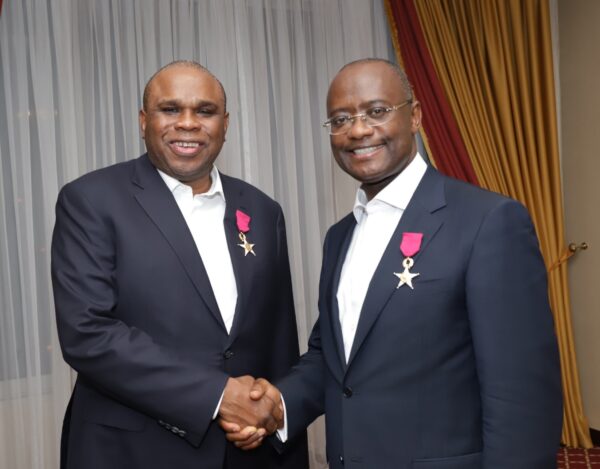On the eve of the formal General Meetings of the African Export-Import Bank (Afreximbank), scheduled for June 28 in Abuja, Nigeria, all eyes are turning towards the succession of the outgoing president, Professor Benedict Oramah. While the process remains shrouded in strict secrecy, several reliable sources mention Cameroonian Dr George Elombi as the favorite to lead the institution.
Quiet but influential, Dr Elombi has been serving as Executive Vice President in charge of corporate governance and legal services since 2015. Recruited in 1996, he is considered an institutional memory of the bank, having accompanied its gradual expansion for nearly three decades. Trained as a lawyer, holding an LLM and a PhD in international commercial arbitration from the University of London, he has systematically climbed the ranks: deputy director of legal services in 2008, executive secretary in 2009, before being promoted to executive vice presidency.
His professional closeness to Benedict Oramah, with whom he shares a certain management rigor and a strong Pan-African culture, fuels the idea of a seamless transition. However, no official communication has been made yet on the outcome of the call for applications launched several months ago. The process remains locked, and the profiles in contention, as well as the Council’s deliberations, are kept confidential.
Among the internal figures who could have vied for the position is Ms. Kanayo Awani, the current Executive Vice President in charge of intra-African trade. With a Harvard education and a 17-year career at Citigroup Nigeria, she is considered one of Afreximbank’s most strategic leaders. However, the logic of geographical alternation—Benedict Oramah being Nigerian himself—may have worked against her, according to sources close to the matter.
Another respected figure, Zimbabwean Denys Denya, Senior Executive Vice President in charge of finance and banking services, the guardian of the bank’s financial balances, was not selected due to age criteria, even though he recently received an extension of his mandate.
Whoever succeeds Benedict Oramah as president of Afreximbank will face several major challenges: maintaining the high pace of financing set by the Oramah decade, ensuring the sustainability of the commitment portfolio, especially towards sovereign states, and refining the strategy for intra-African trade development in a geopolitically shifting environment.
Under Benedict Oramah’s presidency, the bank’s equity has multiplied tenfold, from 4 to 40 billion dollars between 2015 and 2025. But beyond the numerical balance sheet, it is his decisive action during the Covid-19 pandemic—with massive financial support to Africa—and his commitment to the African Continental Free Trade Area (AfCFTA), notably through one billion dollars allocated to its secretariat, that will leave a lasting mark.
Succeeding Benedict Oramah is not just a handover. It is embracing a vision, inheriting a course, and asserting governance that matches Afreximbank’s Pan-African ambitions.
Photo caption: Afreximbank President, Professor Benedict Oramah (left), and Executive Vice President, Dr George Elombi, after being decorated with the Cameroonian national distinction of Knight of the Order of Valor, in Yaoundé, 2019.


